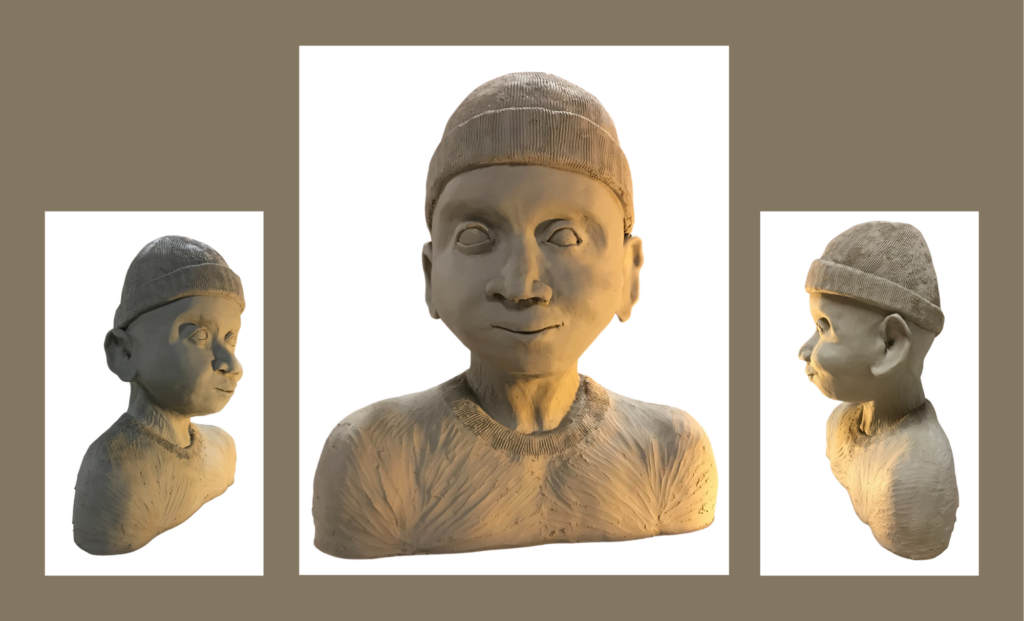
This is Jamal
By LJ Boswell
As I listened to the audiobook, We Do This Til We Free Us by Mariame Kaba, this sculpture came to life. As listened to Mariame outlining the atrocities of our criminal punishment system, I wondered who this person was. It became clear that he is a young black man (maybe 18 or 19 years old) in this country we call the United States of America.
As I listened to Mariame detail the violence of the school to prison pipeline, I wondered how much this young person had already experienced it. Perhaps, he has friends and family who have been subsumed by it. Maybe he has witnessed relatives changed in ways that are not about rehabilitation but hardening and surviving torture and systems that dehumanize and perpetuate racist violence. Perhaps his family has worked hard to stay intact and strong, gifting him with resiliency in this oppressive world.
His name is Jamal. I want to know about his gifts and talents. Perhaps he’s an artist, already skilled in recreating the human face in realistic likeness. Perhaps he loves science and is fascinated by outer space. Or perhaps he is curious about the medical field: how the body works, how wounds heal.
How many of his relatives have been incarcerated? How many connections that would have buoyed him up have been taken from him? How many times has he been stopped by the police? Surveilled in stores? How many times has he run away from the sound of bullets? Has he been locked in a cage yet? Perhaps none of these things are true for him.
I can hope that he’s found his way to the abolitionist movement. Perhaps he’s turning that gifted and talented mind of his towards imagining alternatives. Perhaps he is one of the young black and brown people in the streets demanding change. Perhaps they are dreaming and experimenting about alternative ways of being in community that uplift and heal.
Perhaps he has learned about the long lineage of black and brown activists who through political struggle have brought on systemic changes for him and his family. Perhaps he keeps these ancestors with him while protesting as a part of the new generation of activists. Perhaps he has learned about hope as a discipline and holds a vision for transforming our world so that everyone has what they need.
No matter his experiences. This is Jamal. He wants you to know that he is here.